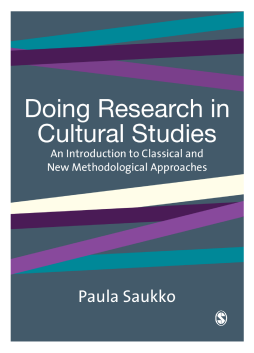
BOOK
Doing Research in Cultural Studies: An introduction to classical and new methodological approaches
(2003)
Additional Information
Book Details
Abstract
A considerable proportion of pupils leave primary school unable to write well enough to deal with the demands of secondary school. This innovative new book aims to help teachers and SENCOs to work alongside pupils to help them address their own difficulties. The book has three parts: Part one explores the various issues which underpin any discussion of handwriting: letterforms; the pros and cons of handwriting models; how to help children write at speed; writing posture; pens and pen hold; left-handedness; talking to parents; and some of the common causes of handwriting problems. Part two presents a series of examples of handwriting in photocopiable form, aimed principally at the pupils but with full teacher support, designed to show pupils a range of handwriting problems, helping them them to self-diagnose and work towards improvement. Each page offers practical tips and help for pupils with difficulties. All of the photocopiable material is also provided in electronic format on the companion website. A considerable proportion of pupils leave primary school unable to write well enough to deal with the demands of secondary school. This innovative new book aims to help teachers and SENCOs to work alongside pupils to help them address their own difficulties. The book has three parts: Part One explores the various issues which underpin any discussion of handwriting: letterforms; the pros and cons of handwriting models; how to help children write at speed; writing posture; pens and pen hold; left-handedness; talking to parents; and some of the common causes of handwriting problems. Part Two presents a series of examples of handwriting in photocopiable form, aimed principally at the pupils but with full teacher support, designed to show pupils a range of handwriting problems, helping them to self-diagnose and work towards improvement. Each page offers practical tips and help for pupils with difficulties. All of the photocopiable material is also provided in electronic format on the companion Website. Part Three sets out a diagnostic technique for teachers to follow, outlining three approaches to tackling handwriting problems: a quick, small-group assessment; providing one-to-one help; and working with a whole class. Each approach is outlined in detail, offering advice on effective observation, procedures to follow in giving appropriate practical help to pupils, and how to assess progress. Part Three also offers guidelines for designing checklists, and the role of surveys and research. Authoritative, wide-ranging and full of practical help, this book will be particularly useful for secondary teachers, secondary SENCOs and teaching support staff.
